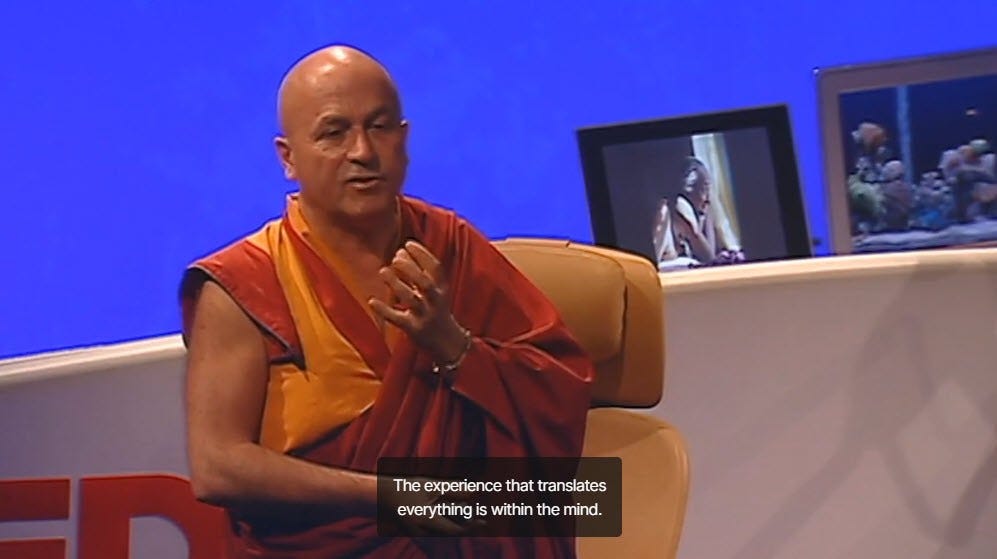I started off this month focused on wellbeing, as many tend to do this time of year, and it led me to revisit some of what I had learned previously about mindfulness and the benefits of regular meditation. I had actually done some research on transcendental meditation as a teenager in high school, but it wasn't until I was in law school (the first time), that I met Scott Rogers, Founder and Director of the University of Miami School of Law's Mindfulness in Law Program (now part of UMindfulness).
It's no secret practicing law is stressful, and there are plenty of other careers, especially in healthcare, public safety, defense, and national security, that expose people to high levels of stress on a regular basis. Without a disciplined approach towards self-care, prolonged exposure can have significant adverse consequences, both mentally and physically, that can lead to more mistakes, accidents, burnout, or even worse.
And even if you are not in a typical high stress occupation, being able to effectively manage stress and other distractions can improve performance, resilience after unexpected setbacks, and overall wellbeing. Major life events and job changes can significantly increase stress, as well, especially if you haven't had the time or resources to be able to provide for necessities with disruptions that could last 3 to 6 months or even longer.
While there is a lot to unpack to understand why someone may be responding to stress a certain way, one of the more obvious symptoms of stress can be a lack of focus. Not paying attention in a meeting, asking the same question repeatedly after it's already been answered, overlooking important data points that could significantly change the way a problem is being addressed, repeatedly checking notifications instead of focusing on training -- the list can go on.
This is compounded by the reality that the convenience of personal mobile devices along with the apps available on them have conditioned us to want to stay distracted. The Fear of Missing Out (FoMO) and lure of doomscrolling keep us from focusing on more constructive activities, and even just getting the rest we need, that can help us accomplish long-term goals.
"60.6% of employees admit that they rarely to never do even an hour or two of deep, focused work each day without distraction." -- David Allen and Justin Hale, "7 Ways Managers Can Help Their Team Focus," Harvard Business Review, Jan. 24, 2023.
And this is one of those areas that I've seen regular meditative practice improve over time. It's "mind transformation" or "mind training" as Matthieu Ricard describes it, which is the essence of meditation.
"We are ready to spend 15 years achieving education. We love to do jogging, fitness. We do all kinds of things to remain beautiful. Yet, we spend surprisingly little time taking care of what matters most -- the way our mind functions -- which, again, is the ultimate thing that determines the quality of our experience." -- Matthieu Ricard
In this attention economy, with so much negative news that can easily overwhelm our senses if we allow it, being able to stay focused is quickly becoming a distinguishing skill. And if you're finding yourself struggling with that lately, you are not alone. The point is to recognize when it's happening and incorporate the mind training you may need into your fitness routine sooner rather than later.
“Data is plentiful. Attention is scarce, and we'll never get more of it. Thinking about how we focus that correctly, I think, is one of our most significant opportunities.” -- David Autor, "What Microsoft’s Satya Nadella thinks about work of the future," MIT Sloan Ideas Made to Matter, Nov. 24, 2020.
Reference
ABA Commission on Lawyer Assistance Programs, "Stress," at https://www.americanbar.org/groups/lawyer_assistance/resources/stress/
Gupta M, Sharma A. "Fear of missing out: A brief overview of origin, theoretical underpinnings and relationship with mental health." World J Clin Cases. 2021 Jul 6;9(19):4881-4889. doi: 10.12998/wjcc.v9.i19.4881.
Paige Leskin, Staying up late reading scary news? There's a word for that: 'doomscrolling', Business Insider, Apr. 19, 2020, at https://www.businessinsider.com/doomscrolling-explainer-coronavirus-twitter-scary-news-late-night-reading-2020-4
McChrystal Group, "Team Resilience Playbook," at https://www.mcchrystalgroup.com/insights/team-resilience-playbook/
Kevin McSpadden, "You Now Have a Shorter Attention Span Than a Goldfish, " Time, May 14, 2015, at https://time.com/3858309/attention-spans-goldfish/
Matthieu Ricard, "The Habits of Happiness," TED Talk, at https://www.ted.com/talks/matthieu_ricard_the_habits_of_happiness
Ms. Smith, "Microsoft: Goldfish have higher attention spans than we do thanks to digital lifestyles," CSO Online, May 18, 2015, at https://www.csoonline.com/article/2922807/microsoft-goldfish-have-higher-attention-spans-than-we-do-thanks-to-digital-lifestyles.html
Taylor Soper, "The psychological impact of layoffs: Tips for employees and leaders navigating job cuts," GeekWire, Nov. 23, 2022, at https://www.geekwire.com/2022/the-psychological-impact-of-layoffs-tips-for-employees-and-leaders-dealing-with-job-cuts/
University of Miami, UMindfulness, at https://umindfulness.as.miami.edu/
U.S. Department of Health and Human Services, Office of Disease Prevention and Health Promotion, Office of the Assistant Secretary for Health, Office of the Secretary. "Healthy Living: Get Enough Sleep," at https://health.gov/myhealthfinder/healthy-living/mental-health-and-relationships/get-enough-sleep
Wikipedia, "Attention Economy," at https://en.wikipedia.org/wiki/Attention_economy
--, "Doomscrolling," at https://en.wikipedia.org/wiki/Doomscrolling
--, "Transcendental Meditation," at https://en.wikipedia.org/wiki/Transcendental_Meditation





